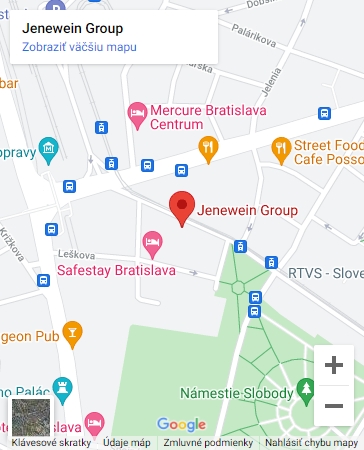Naše poradenské tímy sú aktívne v rámci globálnych partnerstiev a networkov, vďaka čomu dokážeme držať prst na pulze najnovšieho vývoja a v kombinácii s inovatívnymi prístupmi ponúknuť osvedčené riešenia v stredoeurópskom regióne i mimo neho.
Medzi našich klientov patria medzinárodné spoločnosti, české i slovenské firmy, investori, privátne holdingy, rodinné podniky, ale aj verejný a neziskový sektor. Naše poradenské tímy sa usilujú o vytváranie obojstranne výhodných partnerstiev a budovanie dlhodobých vzťahov.
Viac >>
Články & Štúdie
Slovakia Turns the Tables
BRATISLAVA, Slovakia -- Slove Prime Minister Mikulas Dzurinda was so incensed in 1999 over his then-finance minister's refusal to agree to a painful package of economic changes that he says his "screaming made chandeliers fall from the ceiling."
That old Slovak saying about chandeliers didn't quite come to pass, but that meeting finally put the Central European nation on the path to economic overhaul. Today, the country of 5.4 million is fast becoming a model for change among the 10 countries that joined the European Union in May.
Just seven years ago, former U.S. Secretary of State Madeleine Albright called Slovakia a "black hole in the heart of Europe." By 1999, the situation was dire. The Slovak currency, the koruna, was falling in value, interest rates were hovering near 30% and the country was low on cash.
A Citibank representative told Slovak officials the bank would pull out in days if the government didn't show it was serious about an overhaul, two Slovak officials say.
So Mr. Dzurinda acted fast. About six months after a broad coalition government took power, he announced a sweeping economic package, including higher energy and transportation prices and a temporary import surcharge. The moves have paid off.
Under Mr. Dzurinda the country has cut corporate, income and sales taxes to a flat 19% rate and improved the business climate through measures to slice government red tape.
The World Bank said last year that Slovakia did more than any other nation to improve its business environment in 2003. The changes included cutting the time it takes to start a business nearly in half, introducing flexible working hours, opening a private credit registry and, through a new collateral law, reducing the time to recover debt by three-quarters. To be sure, it still takes 50 days on average to start a business in Slovakia, compared with five days in the U.S. and 18 days in Britain, according to the World Bank -- and unemployment remains high at 18%.
The Slovak coalition is entering another tough period, when it will have to defend the changes to a restless population and sustain them against politicians who may want to whittle them down.
"This government is among the most unpopular, if not the most unpopular government in the short Slovakian history," says Ivan Miklos, vice prime minister and current finance minister, citing polls that show that nearly 70% of Slovaks aren't satisfied with the government. That dissatisfaction could be tied to the increase in people living in poverty, which rose to 21% in 2002 from 7% in 1996 as costs of living jumped, according to the Slovak Statistical Office. Slovakia also ranks 57th out of 146 countries in the latest rankings by Transparency International, up just two places from 2003, reflecting lingering perceptions of corruption.
There are signs that the government might be moving too fast. Mr. Dzurinda's government promised free land to Korean car maker Kia Motors Corp. to build a €1 billion ($1.31 billion) plant in central Slovakia, but in its haste to land the project went ahead without first getting landowners to agree to sell.
The government has taken a hard line, saying it will expropriate the land if necessary, setting off a battle with residents that threatens to delay construction and stain the reputation of Slovakia's car sector, which accounts for a quarter of the country's industrial output.
Still, while its neighbors in Central Europe have struggled with political upheaval since joining the EU -- the prime ministers of Hungary, the Czech Republic and Poland have been voted out or resigned in the past year -- Slovakia's leadership has held together and garnered the political will to push through a painful swath of economic changes.
Mr. Dzurinda, a straight-talking former railroad worker, has maintained a patchwork coalition, while Mr. Miklos, a former think-tank founder, assembled a team of technocrats that mapped out the strategy.
The duo drew Slovakia from the brink of financial and political collapse under former Prime Minister Vladimír Meciar, who squelched democratic freedoms, approved a series of crony privatizations to friends and close associates and turned his back on the North Atlantic Treaty Organization and the EU.
Brigita Schmögnerová, the finance minister at that fateful meeting in 1999, denies that Mr. Dzurinda shouted at her, but she says she did sharply disagree with Messrs. Dzurinda and Miklos about enacting harsh measures to increase taxes and energy prices. In the end, she relented.
Ms. Schmögnerová, who is now executive secretary for the United Nations Economic Commission for Europe -- which works to foster sustainable economic growth among its 55 member countries -- says that Slovakia's overhauls are producing mixed results. "These policies will not be successful over the long-term," she insists.
Mr. Dzurinda disagrees. "From that moment we were able to do what was necessary," he says. "And we prepared a very horrible and painful package of measures, thanks to which in 10 to 12 months we were able to stabilize the economy."

























